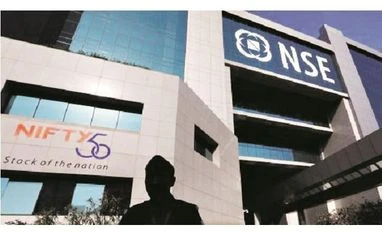The introduction of weekly settlement for Nifty contracts from February 11 will help punters hedge their bets better against market volatility ahead of the national elections.
Bank Nifty options were introduced last year and have become popular with traders wanting to take a short-term bet.
The premium for weekly options contracts is lower than monthly contracts due to less time value.
The premium of any option consists of two components: Its intrinsic value and time value. In options trading, time value refers to the portion of an option’s premium that is attributable to the amount of time remaining until the expiry of the option contract.
“Traders can now take a short-term view of the index, and those who used the Nifty to hedge or for arbitrage will have more options now,” said Nithin Kamath, chief executive officer (CEO), Zerodha, an online brokerage.
Option contracts typically expire on the last Thursday of every month. For instance, if you are trading a Nifty option today, you can either buy a January contract, a February contract or a March contract. Weekly settlement will now allow you to buy a contract for the first, second, third week of January, and so on, giving traders a chance to settle their positions on the Thursday of every week.
There has been a spurt in the turnover of options trading in the past year, with the weekly settlement in Bank Nifty boosting activity in the index options segment. The overall share of options trading has increased to 87 per cent in FY19 from 84 per cent in the previous financial year. In comparison, the share of futures trading has declined 2.5 percentage points to 9.4 per cent and that of cash market has declined 0.9 percentage points to 4.2 per cent.
Within the options segment, the share of index options has risen 3.7 percentage points to 82 per cent.
With the introduction of Nifty weekly options, the share of index options in the overall market is expected to increase even further, according to experts.
Conversely, the turnover of stock options is set to dip marginally, with the introduction of physical settlement for all futures and options (F&O) stocks in the next six months. Currently, only about 50-60 stocks are physically settled.
Physical settlement means that stocks either have to be bought or sold when the stock option contract expires. Settlement in index contracts, on the other hand, will still be done in cash.
The options market is growing rapidly because of advantages such as high liquidity, less transaction cost, flexibility in hedging, arbitrage and the leeway to use customised strategies, said experts.
“Traders are familiar with low-risk option strategies and understand the effect and benefit of time decay. The options market provides a huge opportunity to buyers to play the volatility of expiry day by paying a small premium,” said Chandan Taparia, derivatives analyst at Motilal Oswal Financial Services.
The artificially defined contract lots and high margins had made it difficult for investors to effectively hedge risks, said some experts. Over the past few months, the Securities and Exchange Board of India (Sebi) has raised the margin requirement thrice, effectively increasing it by 40-50 per cent.
Options writers, especially those writing out of the money options, and arbitrageurs, who attempt to profit from price inefficiencies, will be hit the most.
Unlock 30+ premium stories daily hand-picked by our editors, across devices on browser and app.
Pick your 5 favourite companies, get a daily email with all news updates on them.
Full access to our intuitive epaper - clip, save, share articles from any device; newspaper archives from 2006.
Preferential invites to Business Standard events.
Curated newsletters on markets, personal finance, policy & politics, start-ups, technology, and more.
)